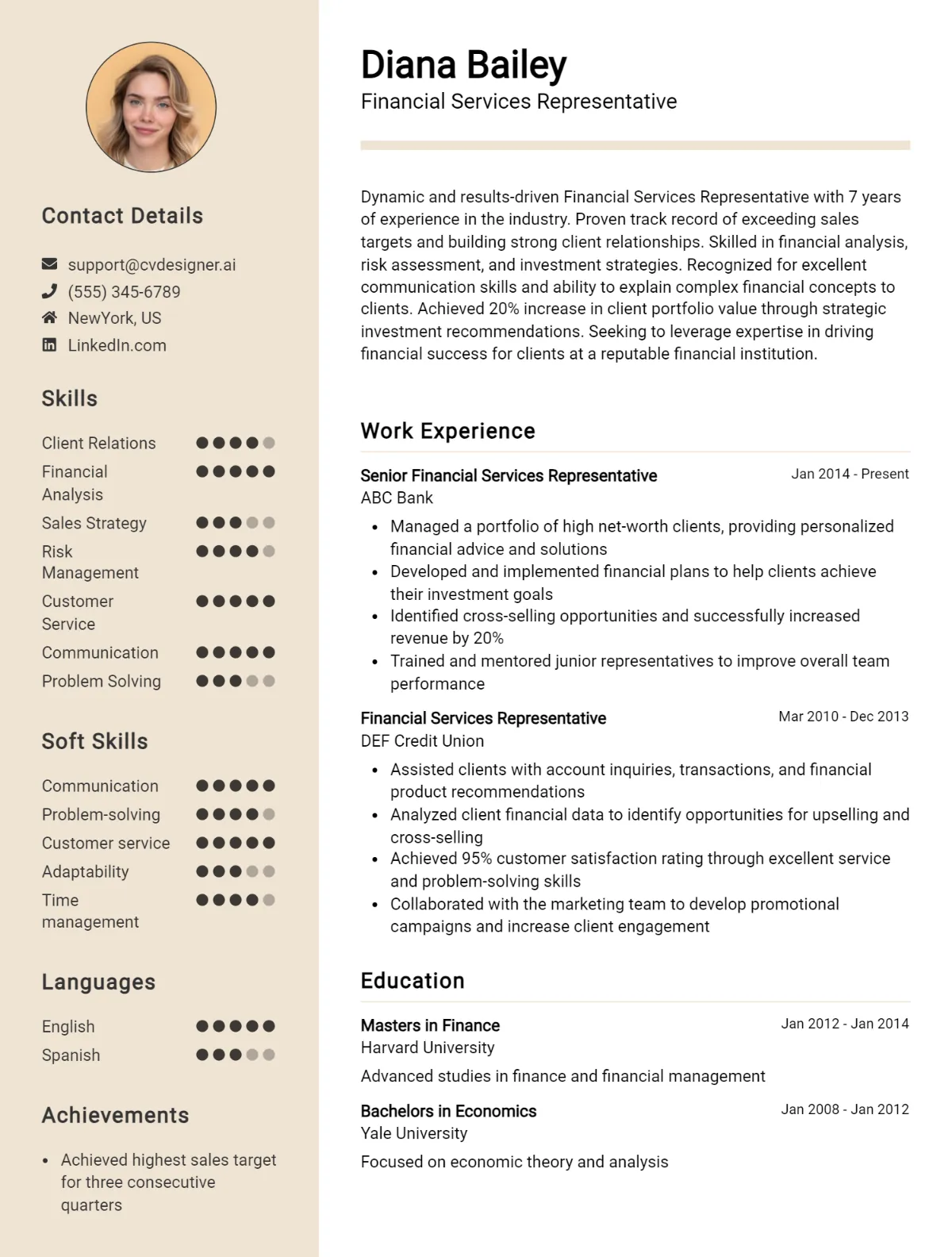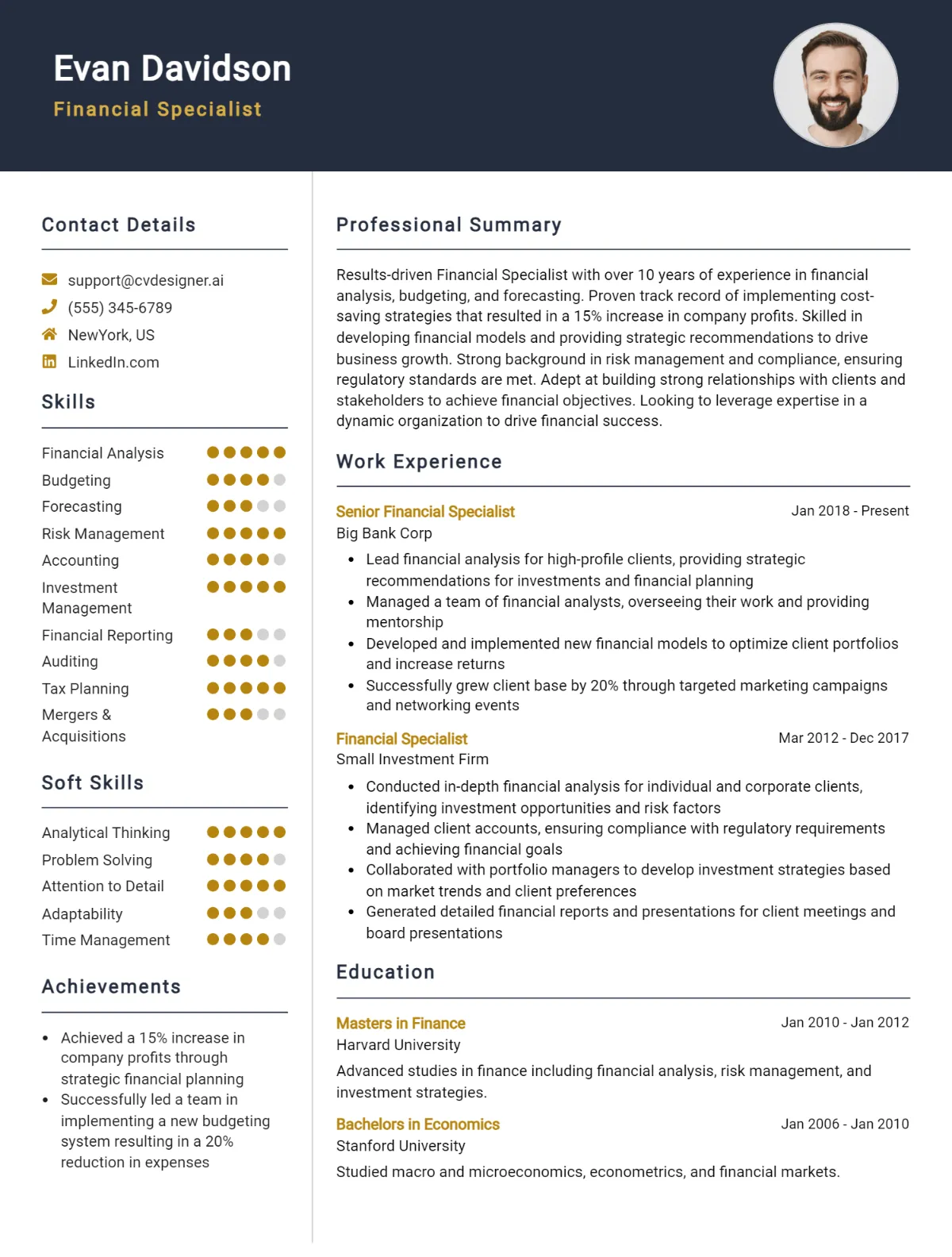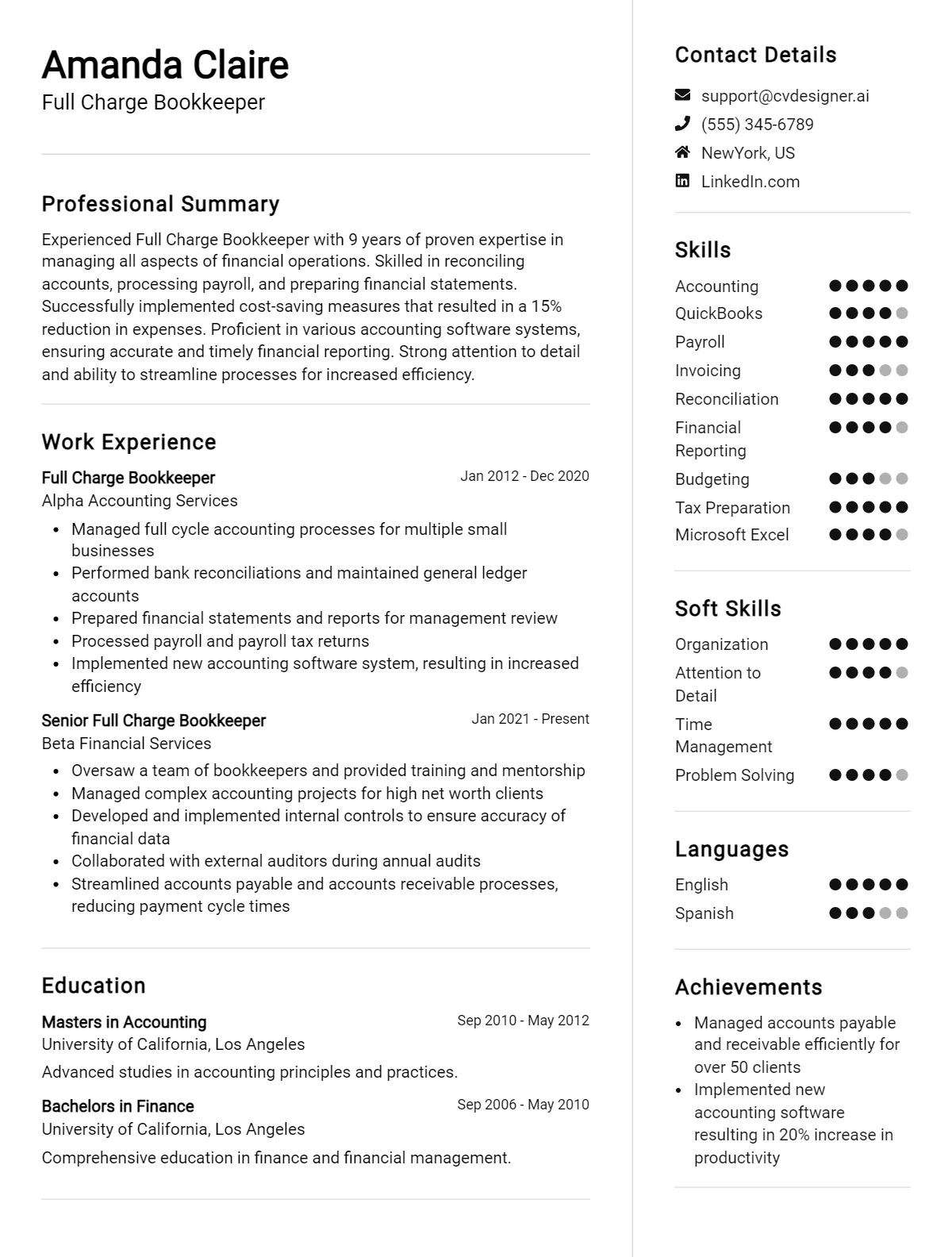When it comes to crafting a resume that stands out, the skills you include can make all the difference. Whether you’re a seasoned professional or just starting your career, your skill set is a critical component of your resume. It not only highlights your qualifications but also demonstrates how you are the ideal candidate for the job. In this guide, we’ll explore the 25 best skills to include on a resume, provide examples of how to showcase them, and offer tips on how to make these skills work for you in a competitive job market.
Why Skills Matter on a Resume
Showcasing Your Qualifications
In the realm of job applications, skills are more than just a list of competencies. They are the bridge between your qualifications and the job requirements. When you include the right skills on your resume, you are essentially tailoring your profile to fit the job description, making it easier for employers to see how you align with their needs. This alignment is crucial because it can significantly increase your chances of getting noticed.
Importance in the Hiring Process
Skills play a vital role in the hiring process, especially in the age of Applicant Tracking Systems (ATS). These systems are designed to scan resumes for specific keywords, many of which are skill-related. If your resume lacks these keywords, it might never make it to a human recruiter. Moreover, once your resume does reach a hiring manager, your skills section becomes a quick reference point that highlights your suitability for the role.
Balancing Hard and Soft Skills
A well-rounded resume includes a balance of both hard and soft skills. Hard skills are your technical abilities—those that are measurable and specific, such as coding or data analysis. Soft skills, on the other hand, are interpersonal attributes like communication and teamwork. Both types of skills are crucial, but the key is to tailor them to the job you’re applying for, ensuring you present yourself as a well-rounded candidate.
Pro Tip: Use our resume builder to seamlessly integrate both hard and soft skills into your resume.
Hard Skills vs. Soft Skills
Understanding Hard Skills
Hard skills are the technical skills you’ve acquired through education, training, or hands-on experience. These are often job-specific and can include abilities like programming, data analysis, foreign language proficiency, or the use of particular software. Hard skills are typically easier to quantify and are often what hiring managers look for first when reviewing a resume.
Examples of Hard Skills:
- Programming Languages: Python, Java, C++
- Data Analysis: Excel, SQL, R
- Project Management: Agile methodologies, Jira
- Technical Writing: Documenting processes, creating manuals
Understanding Soft Skills
Soft skills, on the other hand, are the interpersonal skills that dictate how you interact with others. These are crucial in nearly every job and are often what make you a valuable team member. Unlike hard skills, soft skills are harder to quantify but are equally important in the workplace.
Examples of Soft Skills:
- Communication: Clear and effective writing and speaking
- Teamwork: Ability to collaborate and work well with others
- Problem-Solving: Finding solutions in complex situations
- Adaptability: Adjusting to new environments and challenges
Why Both Are Important
Including both hard and soft skills on your resume ensures that you present yourself as a well-rounded candidate. Employers are looking for individuals who not only have the technical know-how to perform the job but also the interpersonal skills to thrive in a collaborative environment. Balancing these two types of skills can make your resume more compelling and demonstrate that you are prepared to handle all aspects of the job.
Pro Tip: Check out our resume templates to see how to effectively balance hard and soft skills in your resume layout.
How to Identify the Best Skills for Your Resume
Analyzing the Job Description
The first step in identifying the best skills for your resume is to thoroughly analyze the job description. Employers often list the skills they are looking for directly in the job posting. By carefully reading through these descriptions, you can extract the key skills that are necessary for the role. These should be the skills you prioritize on your resume.
Steps to Analyze the Job Description:
- Highlight Keywords: Look for repeated terms in the job description, particularly in the required qualifications section.
- Match Your Skills: Compare the highlighted keywords with your skill set and identify overlaps.
- Prioritize Skills: Focus on including the most relevant skills that align with the job requirements.
Industry-Specific Skills
Certain industries have specific skills that are highly valued. For example, in the tech industry, programming languages and software development skills are crucial, while in marketing, skills like SEO and content creation are in demand. Tailoring your resume to include industry-specific skills can significantly increase your chances of landing an interview.
Examples of Industry-Specific Skills:
- Tech Industry: Coding, cybersecurity, cloud computing
- Marketing: SEO, content marketing, social media management
- Finance: Financial analysis, budgeting, accounting software
Transferable Skills
Transferable skills are abilities that can be applied across various jobs and industries. These skills are especially important if you’re changing careers or applying for a job in a different field. Skills like project management, communication, and leadership are valuable in almost any role and should be highlighted on your resume.
Examples of Transferable Skills:
- Project Management: Planning, execution, and closing of projects
- Leadership: Managing teams and leading initiatives
- Communication: Conveying information clearly and effectively
Self-Assessment
Before you start listing skills on your resume, take the time to assess your own abilities. Think about the tasks you excel at, the tools you use regularly, and the feedback you’ve received from colleagues or supervisors. Self-assessment helps ensure that the skills you include are both relevant and genuinely reflective of your capabilities.
Steps for Self-Assessment:
- Reflect on Past Roles: Consider what you’ve done well in previous jobs.
- Gather Feedback: Ask colleagues or supervisors for input on your strengths.
- Identify Core Competencies: Determine which skills are most relevant to the jobs you’re targeting.
Pro Tip: Use our cv builder to customize your resume with the skills that best reflect your strengths.
Use our Best Resume Templates
Discover our top-tier Resume templates, meticulously designed to make a lasting impression. Choose from a variety of professional layouts to enhance your career prospects.
25 Best Skills to Include on Your Resume (With Examples)
Now that we’ve covered how to identify the right skills for your resume, let’s dive into the 25 best skills to include, complete with examples of how to demonstrate them.
1. Communication
Communication is essential in almost every job. Whether it’s verbal or written, the ability to convey information clearly and effectively is critical. Employers look for candidates who can articulate their ideas and collaborate well with others.
Example:
“Led a weekly team meeting, presenting project updates and facilitating discussions to ensure alignment across departments.”
2. Teamwork
Teamwork is about working well with others to achieve a common goal. In today’s collaborative work environments, being able to function as part of a team is a valuable skill.
Example:
“Collaborated with cross-functional teams to develop and implement a new marketing strategy, resulting in a 15% increase in customer engagement.”
3. Problem-Solving
Problem-solving skills demonstrate your ability to think critically and find solutions to challenges. This is a highly sought-after skill in roles that require innovation and adaptability.
Example:
“Identified and resolved a critical bug in the company’s software, reducing customer complaints by 25%.”
4. Adaptability
Adaptability refers to your ability to adjust to new situations and challenges. This skill is particularly important in fast-paced or rapidly changing industries.
Example:
“Adapted to a remote work environment, maintaining productivity and meeting project deadlines despite the transition.”
5. Time Management
Time management is the ability to prioritize tasks and manage your time efficiently. Employers value this skill because it directly impacts productivity and the ability to meet deadlines.
Example:
“Managed multiple projects simultaneously, consistently meeting deadlines and achieving a 98% on-time delivery rate.”
6. Leadership
Leadership skills involve guiding and motivating others to achieve common goals. Even if you’re not in a management position, demonstrating leadership can set you apart.
Example:
“Led a team of five in the successful completion of a $2 million project, exceeding client expectations.”
7. Technical Skills
Technical skills are job-specific abilities related to the tasks or tools required for a particular role. In fields like IT, engineering, or design, technical skills are often the most important qualifications.
Example:
“Developed a Python-based tool that automated data processing, reducing manual work by 50%.”
8. Project Management
Project management skills include planning, executing, and closing projects. This skill is crucial in roles that require overseeing multiple tasks or coordinating teams.
Example:
“Managed the end-to-end delivery of a product launch, coordinating with stakeholders and ensuring the project was completed on time and within budget.”
9. Data Analysis
Data analysis involves collecting, processing, and interpreting data to make informed decisions. This skill is highly valued in fields like finance, marketing, and IT.
Example:
“Analyzed customer data to identify trends, resulting in a 20% increase in sales through targeted marketing campaigns.”
10. Customer Service
Customer service skills demonstrate your ability to interact with customers effectively and resolve their issues. This skill is crucial in roles that involve direct customer interaction.
Example:
“Resolved 95% of customer complaints on the first call, improving overall customer satisfaction scores by 10%.”
11. Digital Marketing
Digital marketing skills include SEO, content creation, social media management, and more. These skills are essential for roles in marketing, communications, and sales.
Example:
“Implemented a content marketing strategy that increased website traffic by 40% within six months.”
12. Foreign Languages
Being proficient in one or more foreign languages is a valuable skill, especially in global companies or roles that involve international communication.
Example:
“Fluent in Spanish and English, enabling effective communication with clients across Latin America.”
13. Creativity
Creativity is the ability to think outside the box and come up with innovative solutions. This skill is particularly valued in roles that require design, content creation, or problem-solving.
Example:
“Designed a new product packaging that increased sales by 25% due to its unique and eye-catching design.”
14. Critical Thinking
Critical thinking involves analyzing information objectively and making reasoned judgments. It’s a crucial skill in roles that require decision-making or problem-solving.
Example:
“Conducted a comprehensive risk assessment that identified potential issues, leading to the implementation of preventative measures.”
15. Negotiation
Negotiation skills are important in roles that involve sales, purchasing, or any form of contract management. Effective negotiation can lead to better deals and improved relationships.
Example:
“Negotiated a 10% discount with a key supplier, resulting in annual savings of $50,000.”
16. Sales Skills
Sales skills include understanding customer needs, communicating value, and closing deals. This skill is essential in roles that involve selling products or services.
Example:
“Increased sales by 30% through a targeted outreach campaign, securing five new major clients.”
17. Research Skills
Research skills involve gathering, analyzing, and interpreting data to support decision-making. This skill is valuable in roles that require information gathering or market analysis.
Example:
“Conducted market research that identified a new target demographic, leading to a successful product launch.”
18. Financial Management
Financial management skills include budgeting, forecasting, and managing financial resources. These skills are crucial in finance, management, and executive roles.
Example:
“Developed and managed a $1 million budget, ensuring all projects were completed within financial constraints.”
19. Public Speaking
Public speaking is the ability to communicate effectively to an audience. This skill is important in roles that require presentations, leadership, or customer interaction.
Example:
“Delivered a keynote presentation at a national conference, receiving positive feedback from over 200 attendees.”
20. Conflict Resolution
Conflict resolution involves mediating disputes and finding mutually agreeable solutions. This skill is particularly important in leadership and customer service roles.
Example:
“Mediated a conflict between team members, resulting in improved collaboration and a more positive work environment.”
21. Organizational Skills
Organizational skills involve managing your time, tasks, and resources effectively. This skill is crucial in roles that require multitasking or managing multiple projects.
Example:
“Organized and maintained a detailed project schedule, ensuring all milestones were met and no deadlines were missed.”
22. Attention to Detail
Attention to detail is the ability to focus on the small things that can make a big difference. This skill is valued in roles that require precision, such as editing, quality control, or data entry.
Example:
“Reviewed and edited marketing materials, ensuring 100% accuracy and consistency across all channels.”
23. Emotional Intelligence
Emotional intelligence involves recognizing and managing your own emotions, as well as understanding and influencing the emotions of others. This skill is important in leadership, customer service, and team environments.
Example:
“Demonstrated high emotional intelligence by effectively managing team dynamics during a high-stress project, resulting in successful completion.”
24. Social Media Management
Social media management skills include creating, scheduling, and analyzing content across social platforms. This skill is essential for roles in marketing and communications.
Example:
“Managed social media accounts, increasing follower engagement by 50% through targeted content and strategic posting.”
25. Writing Skills
Writing skills involve crafting clear, concise, and compelling content. This skill is crucial in roles that require communication, content creation, or documentation.
Example:
“Authored a series of blog posts that increased website traffic by 30% and generated new leads.”
Pro Tip: To see how these skills can be showcased effectively, explore our resume examples for inspiration.
How to Effectively Showcase Your Skills on a Resume
Placement of Skills on Your Resume
Where you place your skills on your resume can significantly impact how they are perceived. For maximum impact, consider placing your skills section near the top of your resume, especially if your skills are a major selling point for the job. Alternatively, integrate your skills within the work experience section by highlighting them in context.
Using Examples and Metrics
Simply listing skills isn’t enough; you need to provide context. Use examples and metrics to demonstrate how you’ve applied your skills in previous roles. This not only validates your skills but also shows potential employers the tangible benefits of hiring you.
Example:
Instead of just listing “Project Management,” you could write:
“Led a project team of 10, delivering a software development project two weeks ahead of schedule and 10% under budget.”
Tailoring Skills to the Job
Customizing your resume for each job application is crucial. Tailor your skills section to match the job description, emphasizing the skills that are most relevant to the role. This increases your chances of getting past ATS and catching the attention of hiring managers.
Avoiding Overused or Generic Skills
Avoid clichés like “hardworking” or “team player” unless you can back them up with specific examples. Instead, focus on unique skills that are directly relevant to the job and provide evidence of your expertise.
Pro Tip: Use our cover letter builder to craft a cover letter that complements your skills and strengthens your application.
Common Mistakes to Avoid When Listing Skills
Listing Too Many Skills
While it’s tempting to list every skill you have, quality is more important than quantity. Focus on the skills that are most relevant to the job, and avoid overwhelming your resume with too many skills.
Vague or Unsupported Claims
It’s not enough to claim you have a skill; you need to back it up with evidence. Provide examples of how you’ve used each skill in a real-world context, and avoid making vague claims that you can’t substantiate.
Ignoring the Job Description
One of the biggest mistakes you can make is ignoring the job description. Tailor your skills to the specific requirements of the job, and make sure you’re highlighting the skills that the employer is actually looking for.
Forgetting Soft Skills
While hard skills are important, don’t neglect soft skills. Employers value these interpersonal attributes just as much, if not more, than technical abilities. Make sure to include a mix of both to present yourself as a well-rounded candidate.
Pro Tip: Browse our cv examples to see how others have successfully integrated both hard and soft skills into their resumes.
Conclusion
The skills you include on your resume can make or break your chances of landing an interview. By focusing on the most relevant hard and soft skills, tailoring your resume to the job description, and providing concrete examples of your abilities, you can create a resume that stands out in a competitive job market. Remember to regularly update your resume with new skills as you gain experience, and don’t be afraid to remove outdated or less relevant skills.
With the right approach, your skills can be the key to unlocking new career opportunities. Start crafting your resume today using our resume builder and resume templates to ensure your skills are showcased in the best possible light.








